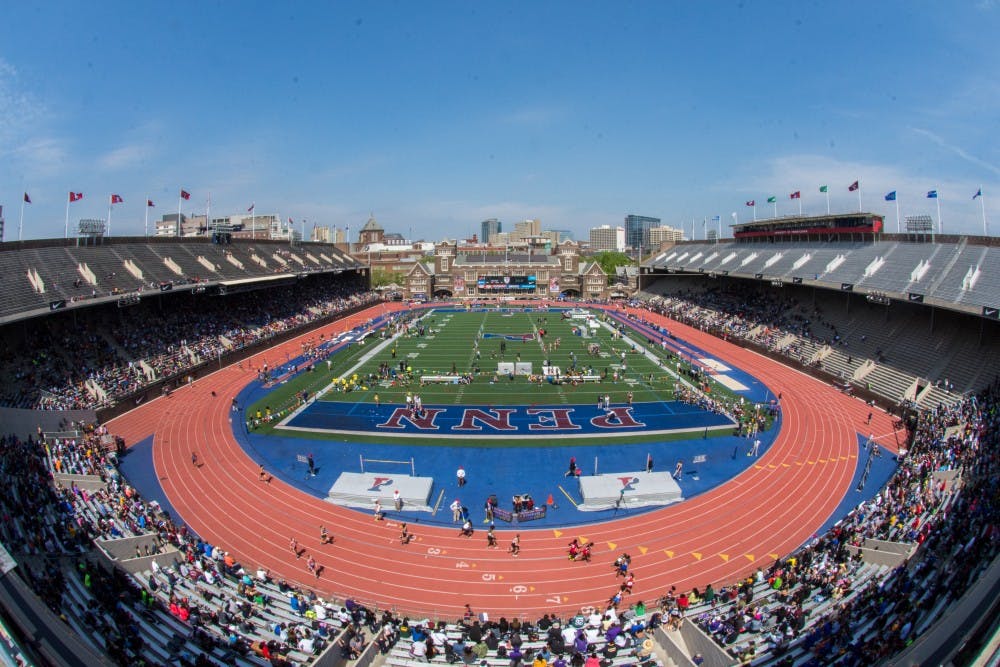With the help of Penn students, the Penn Relays is taking significant steps to promote sustainability at this year’s three-day event that typically attracts thousands.
The Penn Relays is the nation's oldest and largest track and field meet, typically attracting over 100,000 spectators and competitors to Franklin Field. The sheer size of this event inevitably results in immense waste output, ranging from plastic water bottles to food packaging. This year, the Relays is taking place April 26-28 and there have been measures taken to be more environmentally friendly.
Penn Eco-Reps is an on-campus environmental leadership organization open to students, faculty, and staff that aims to promote both awareness of environmental issues and sustainable behavior across campus. Wharton senior and Eco-Rep Artemis Tiburcio is a major leader in orchestrating the relationship between the organization and Penn Relays.
“We worked alongside the Penn Athletics Department as well as with the sustainability department to make sure that our project gets fulfilled,” she said. “Also, we’ve worked with the city of Philadelphia to get recycling and composting bins for free during the event.”
Fellow Eco-Rep and College and Engineering sophomore Richard Ling explained the major goals of this year’s project.
“We have three main initiatives: reducing plastic usage, increasing landfill diversion, and volunteer training to make this a community effort,” he said.
The project hopes to divert waste from landfills, known as landfill diversion, by promoting recycling and composting.
College senior and athlete Regina Salmons noted that during the Relays, waste is often improperly disposed of.
“From a fan perspective, Penn Relays is the fullest that I’ve ever seen Franklin Field,” she said. “I was standing in the packed upper tiers and I saw that fans were just dropping their trash in the stadium. No one was throwing it away because you walk up all these steps through all these people and there’s no way to get to a trash can.”
Eco-Rep and College junior Hannah Sanders said the project plans to set out waste, recycling, and composting bins, including eight in the vendor village alone.
The project also aims to limit the use of plastic, which often litters the environment.
“We’re using smaller water bottles to decrease the plastic volume since in past years Penn has used over 13,000 water bottles," Ling said. "Also, we’re using a filtration system to fill coolers on the turf so we can possibly not even use the bottles.”
Volunteers will oversee a filling station where attendees can refill their water bottles. Sanders said that volunteers will also be promoting awareness of sustainability efforts for the attendees.
“Throughout the course of the three days, we have over a hundred people signed up right now," Sanders said. "This is really essential to help engage attendees to understand their impact on the Earth.”



